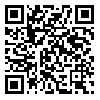BibTeX | RIS | EndNote | Medlars | ProCite | Reference Manager | RefWorks
Send citation to:
URL: http://jdc.tums.ac.ir/article-1-5190-en.html

 , Hossein Mortazavi2
, Hossein Mortazavi2 
 , Pedram Noormohammadpour1
, Pedram Noormohammadpour1 
 , Arghavan Azizpour1
, Arghavan Azizpour1 
 , Sara Rostami3
, Sara Rostami3 
 , Maryam Nasimi *
, Maryam Nasimi * 
 4
4
2- Department of Dermatology, School of Medicine, Tehran University of Medical Sciences, Tehran, Iran; Autoimmune Bollous Diseases Research Center, Tehran University of Medical Sciences, Tehran, Iran
3- School of Medicine, Tehran University of Medical Sciences, Tehran, Iran
4- Department of Dermatology, School of Medicine, Tehran University of Medical Sciences, Tehran, Iran ,
Background and Aim: Acne vulgaris is a common skin disorder. This study was conducted to evaluate the impact of Ramadan fasting on acne healing in patients admitted to the dermatology clinic, Razi Hospital, Tehran.
Methods: In this prospective cohort study, 10 fasting persons (9 women and 1 man) and 10 non-fasting persons (9 women and 1 man) with acne were studied. Their baseline acne severities were recorded and acne improvement was evaluated in both groups after Ramadan month.
Results: Acne improvement was 71% in fasting persons and 49% in non-fasting persons. Improvement in fasting persons i.e. was 1.4 times of non-fasting ones (P=0.158). However, no significant statistical difference was detected. Also, it was determined that improvement was different according to acne grading. Improvement in acne lesions in patients with grade 2 severity was 100%, in those with grade 3 acne was 78%, and in patients with grade 4 acne was 35 % (P=0.025). But in non-fasting patients there was not a statistical difference between acne severity and improvement rate. Furthermore in patients younger than 24, improvement rate of acne was 1.6 fold more than non-fasting persons and in patients older than 24, this ratio was 1.3 (P=0.011).
Conclusion: This study did not show any statistically significant difference in acne improvement between who were fasting and who were not during Ramadan. Studies with larger sample size are recommended.
Received: 2016/09/18 | Accepted: 2016/09/18 | Published: 2016/09/18
| Rights and permissions | |
 |
This work is licensed under a Creative Commons Attribution-NonCommercial 4.0 International License. |



